
UNDP-FOR-THE-RECORD
The Real UN Development System:
A Response to the Heritage Foundation
The United Nations needs all the constructive criticism it can get. As the Washington representative of the UN Development Programme, I can attest that those who work for UN agencies are more focused than anyone else on identifying our shortcomings and working for continuous improvement. So we welcome informed, fair criticism that highlights significant issues—especially when it includes realistic proposals for improving our performance.
The Heritage Foundation has produced constructive critiques of this kind over the years. Brett Schaeffer’s ConUNdrum volume in 2009 contained a number of strong chapters that address key areas of the UN system where performance falls short. But the chapter by former U.S. Ambassador to ECOSOC, Terry Miller, on “The United Nations and Development” is of a different sort. Miller is an experienced former official who was once responsible for overseeing U.S. contributions to UN agencies. He is concerned about the proliferation of agencies and the inconsistencies of donors, and he seeks more accountability and transparency from all actors. His views warrant consideration. But his frustrations with perceived deficiencies in the “UN development system” in general, and UNDP in particular, do not add up to a cogent critique. His chapter is a rambling, dogmatic indictment of all aspects of development assistance, yet he offers only an odd assortment of half-baked ideas to fix the problems. Unfortunately, his chapter was given new life last week during the UN Millennium Summit as a Heritage Special Report (SR-86). Heritage added a further broadside at UN development assistance with a “WebMemo” (#3020) by James Roberts subtitled “Foreign Aid v. Economic Freedom.” Sifting through this barrage of criticism from Heritage, I would like to address three of their major points: reporting results, promoting capitalism, and reforming the system.
Over-Promising and Under-Delivering Results. Miller starts his chapter by mocking the annual reports of UNDP as “filled with beautiful pictures of happy and prosperous people…touting the UN agency’s positive role in their lives.” He takes UNDP to task for a lack of rigorous analysis to explain the linkage between agency programs and the “developmental results” that would justify these smiling faces. He contrasts the “rationalists” (including himself) with the “emotionalists” (UN agencies).
Leaving aside his cynical tone, Miller makes a fair point in challenging development agencies to better demonstrate the impact of their programs, not just to sum up intentions and expenditures. Indeed, as he indicates, measuring results and determining “what works” is the perennial challenge of all development agencies—particularly in terms of the size, significance and sustainability of results. Donors constantly press for cost/benefit justifications for programs so that they can best judge the relative value of their contributions—among types of programs, across sectors of an economy, or even among countries and regions—the “opportunity costs” of one choice or another, as Miller puts it. Unfortunately, Miller appears either stuck in the past or is just plain uninformed. Over the past few years, UNDP has placed strong emphasis on improving the methods and discipline we apply in assessing and documenting the impacts of our efforts. UNDP Country Offices report annual results at the “outcome” level and link inputs, outputs, outcomes and strategic goals, which are then integrated by headquarters into a global report. Comprehensive information about our programs and funding is also available on a country-by-country basis on the Web. Since Miller served in government, the organization has also strengthened its capabilities for independent audits and program evaluations, in close consultation with the U.S. State Department and other major donors regarding both functions. Each of these steps has been noted favorably by these officials and by other independent analysts.
However, the demand for precision in gauging impacts can also drive agencies toward false choices between what can be measured and what actually contributes to human and institutional development in an actual location over time. Improving the conditions of life for a brief period is not the same outcome as assisting in the development of capacities and skills in people and organizations that result in sustainable capabilities and lasting change. Conveying the latter impacts is often better accomplished with illustrative accounts of individual achievements or summaries that capture the nature of progress of this kind. The building of political stability, administrative effectiveness or competitive efficiency is notoriously difficult to measure in a reliable manner, even though these capabilities can be the most important and lasting contributions to a country’s development. Miller himself acknowledges that: “development effects, positive or negative, are difficult to isolate in complex systems in which many inputs and factors combine to produce a result.” Precisely. Which is why experience and judgment based on local understanding and long-term presence are so valuable in organizations such as UNDP or USAID. Resisting the temptation to over-promise change and over-hype impact to impress donors and local officials is a necessary attribute of development professionals.
Ironically, the pitfalls of excessive claims about development impacts are best illustrated by the some of the recent critics of development assistance, who exaggerate the negative consequences of “foreign aid.” A case in point is the Heritage “WebMemo” cited above. James Roberts argues that development assistance (“foreign aid”) promotes corruption, does not foster growth, and does little to create positive change, whether economic competition or democratic governance. He takes the twelve African nations with the largest share of GDP deriving from foreign assistance and correlates that assistance with low levels of economic freedom and high levels of corruption--concluding that aid perpetuates rather than improves both conditions. In so doing, he asserts a direct causal relationship between these evils and the levels of outside assistance that is every bit as exaggerated and misleading as any of the positive claims he and Miller ascribe to aid agencies. Gross correlations such as these ignore the structural and cultural features that result in corrupt behaviors and undeveloped economies, and which outside assistance (technical as well as financial) is often seeking to change or overcome, not reinforce or reward. Such factors as weak governance, gross economic inequalities, criminal syndicates, and external diplomatic agendas have far more to do with encouraging corruption than official development assistance—particularly in the modest amounts and targeted focus of UNDP’s programs. To be sure, history is full of examples where funds ostensibly given for “development” of a country were provided in the wrong ways to the wrong people—indeed, during the Cold War, aid was intended as much to win loyalty as to promote development—but this is not a valid criticism of multilateral assistance in 2010.
And it is also a misleading conclusion to draw about all the countries on Roberts’ list. Half of them have been plagued by, or are still recovering from, crippling conflicts: Guinea Bissau, Mozambique, Mauretania, Burundi, Rwanda, and Sierra Leone. Some have strong governments, others very weak or fragile ones. Some have economies distorted by oil revenues or impacted by climate changes which make balanced growth far more difficult; others are so poor and politically stressed that both insiders and outsiders are more preoccupied with the prevention of civil violence than the nurturing of entrepreneurs. Even so, if growth is his test of success, the recent growth rates of most of these countries look remarkably good (between 3% and 11% over the last few years), despite global economic conditions. Yet the reasons for these successes vary significantly, from strong centralized management (Rwanda), to reasonable democratic stability (Mozambique) to large and growing oil revenues (Guinea Bissau). Or they simply reflect a very low GDP at the start of the measured time frame or a high level of outside assistance in the short-term. The important point is that it is necessary to understand the particular history and features that account for the differences among them—differences that also indicate the best opportunities for progress as well. Misinformed diagnoses from 60,000 feet (or 3,000 miles away) are largely useless or even counter-productive.
Of course development agencies need improved methods for conveying the impact of their work. Miller is apparently not persuaded by the value of pictures or human stories in doing so. But to suggest, as he does, that this is all UNDP’s reports consist of, or that it is not possible to find out where its funds go or what kinds of impacts they have, is simply not fair. Perhaps the best observation is one made recently by the head of USAID under President George W. Bush, Andrew Natsios, who argues that development efforts are plagued by demands for false precision and short-term impacts. As he puts it: “those development programs that are most precisely and easily measured are the least transformational, and those programs that are most transformational are the least measurable.”
“Socialist Leanings (or socialist/Marxist fantasies).” Miller repeatedly suggests that UN agencies have an institutional bias against “capitalism” and a “sixty-year fascination with socialism” that impedes economic growth and stifles entrepreneurs. He says that UNDP and other UN agencies have a “state-centric” philosophy and believe that “the state has a primary role in promoting or directing development.” The United Nations, he argues, “eschews the proven development strategies of classic liberal economics for aid-focused plans that almost certainly do more harm than good because they emphasize and enhance the role of government and central planning.” He then goes on to advocate the importance of private property and the rule of law as essential underpinnings of economic growth.
Apparently as a State Department official in 2002, Miller had at least one bad experience trying to lecture a large diplomatic gathering on the virtues of capitalism: “I spoke of the need for developing countries to embrace capitalism wholeheartedly,” only to find that “the room erupted in a clamor at my mere use of the word.” Or perhaps later, as Ambassador to ECOSOC, he had to spend too many hours in large UN conference rooms listening to diplomats with no involvement in development criticize developed countries for their pre-occupation with private property and capital investment. Again Miller is misinformed or stuck in the past. Across the UN system there is now a clear appreciation that the business community has to be an essential partner in development. Miller should spend more time talking to UNDP Country Directors or Resident Representatives of the UN about their efforts to foster the enabling environments that make private sector development flourish. And with the exception of the small, but strategically-leveraged UN Capital Development Fund, Miller seems unaware of the significant efforts made by UNDP to foster foreign investment and private sector development. This emphasis is best captured in the reports on two widely-acclaimed initiatives: “Growing Sustainable Business” (focused on large corporate initiatives) and “Growing Inclusive Markets” (focused on local private sector development). What these reports record is a multiplicity of initiatives at the country level to promote private sector activity that generates jobs and growth. As for property and legal rights, he might consult the initiatives captured in the report on “Legal Empowerment of the Poor,” produced by a panel co-chaired by Hernando de Soto, the advocate for property rights and the rule of law whom Miller greatly admires.
Even more importantly, Miller greatly oversimplifies the issues relating to economic freedom and “capitalism,” and consequently misconstrues the vital relationship between effective governance and private sector development. Capitalism is not simply an economic choice that officials or citizens adopt like a breakfast cereal. It is a political-economic system which depends for its flourishing on the protection and regulation of governments, and it takes effective political development to accomplish this. As Miller himself notes, markets need political/legal infrastructure: property rights, contract enforcement, courts to resolve disputes—all government-based institutions that most developing countries need more of, not less. How does Miller suppose that such “capitalism” can be fostered and protected, if not by government institutions? If programs for political development are too “state-centric” for him, then so be it. But countries will not have capitalism without effective governments.
To be sure, many kinds of government intervention--running large businesses, setting prices, picking winners and losers, awarding licenses to cronies or bribe-payers--is bad governance, and it is important to recognize the difference and the various types of capitalism that result from these different behaviors. That is the point of a recent study by William Baumol and his colleagues titled Good Capitalism, Bad Capitalism, which posits four different types of capitalist political-economic systems: State-guided, Big Firm, Oligarchic, and Entrepreneurial—the latter being the most productive and innovative. Unfortunately, many countries (both developing and developed) have one of the other kinds—and seem to prefer them--so to transition economies toward the more open and entrepreneurial varieties is a political challenge—not just an economic or philosophical choice--of the first order.
When capitalism functions effectively—markets are efficient and transparent, investment flows to those who can apply it most productively, growth is even and well-distributed—it is a marvel of human ingenuity. But this achievement takes a balance of entrepreneurs, enterprises, legal institutions, regulatory overseers, and effective law-makers. When that balance is out of whack, capitalism can produce bubbles, swings in investment, insufficient tax revenues, fraud and graft that results in horrendous dislocation and real human suffering. If Miller thought “capitalism” in the abstract was a hard sell in large international gatherings in 2002, just imagine the response he would get following the recent global financial crisis and the imbalances and hardship it has caused.
“A U.N. development system that functions like a giant bazaar.” Finally, Miller is dead set against efforts to improve the effectiveness of multilateral agencies and the UN system as a whole. He suggests that the multilateral development system needs more competition, not more consolidation and coherence, because that would only make it more appealing to donors and perpetuate the shortcomings and dysfunctions he ascribes to the agencies involved.
Here again, Miller is way off the mark. What the world needs now is a lot more collaboration and specialization, not less. The pattern of development assistance in many countries is a confusing patchwork of bilateral aid agencies, IGOs, NGOs, IFIs, Foundations, and Corporate philanthropies who often resist coordination, even by the host governments themselves (who, when all is said and done, provide the lion’s share of money and effort on their own behalf.) Donors and host governments have repeatedly sought to address these issues through a set of agreements on “aid effectiveness” which move collaboration in the right direction. But more initiatives of this kind are called for. The UN system is actually one of the better performing actors in this regard, working through a system of Resident Representatives and Country Teams to promote in more-and-more countries a “Delivering as One” approach by multilateral agencies. Yet this is a long way from the kind of centralized, lock-step control that Miller seems to fear—a prospect that is so far from reality it is pointless to worry over.
I conclude where I started. UN agencies and development programs need strong oversight and informed criticism. The Heritage Foundation has sometimes played this role and should continue to try to do so. But its recent papers on the UN development system, timed for the Millennium Summit, fall well short of that standard.
Frederick S. Tipson
Director, Washington Liaison Office
U.N. Development Programme
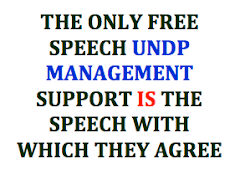



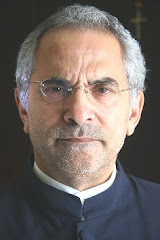

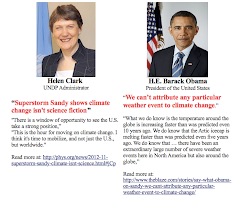














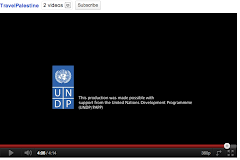

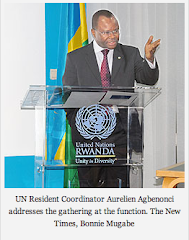



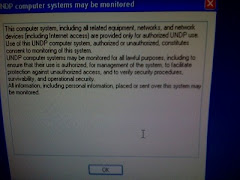

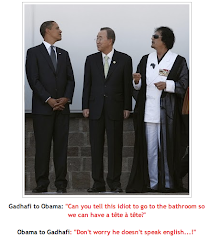
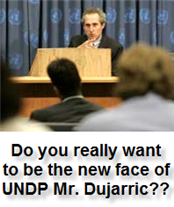






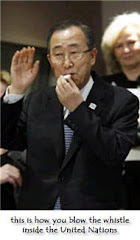
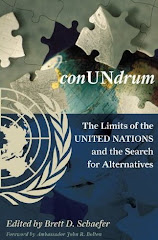

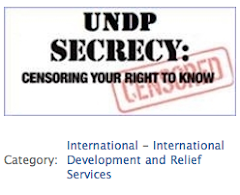



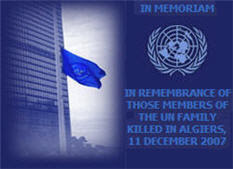



No comments:
Post a Comment